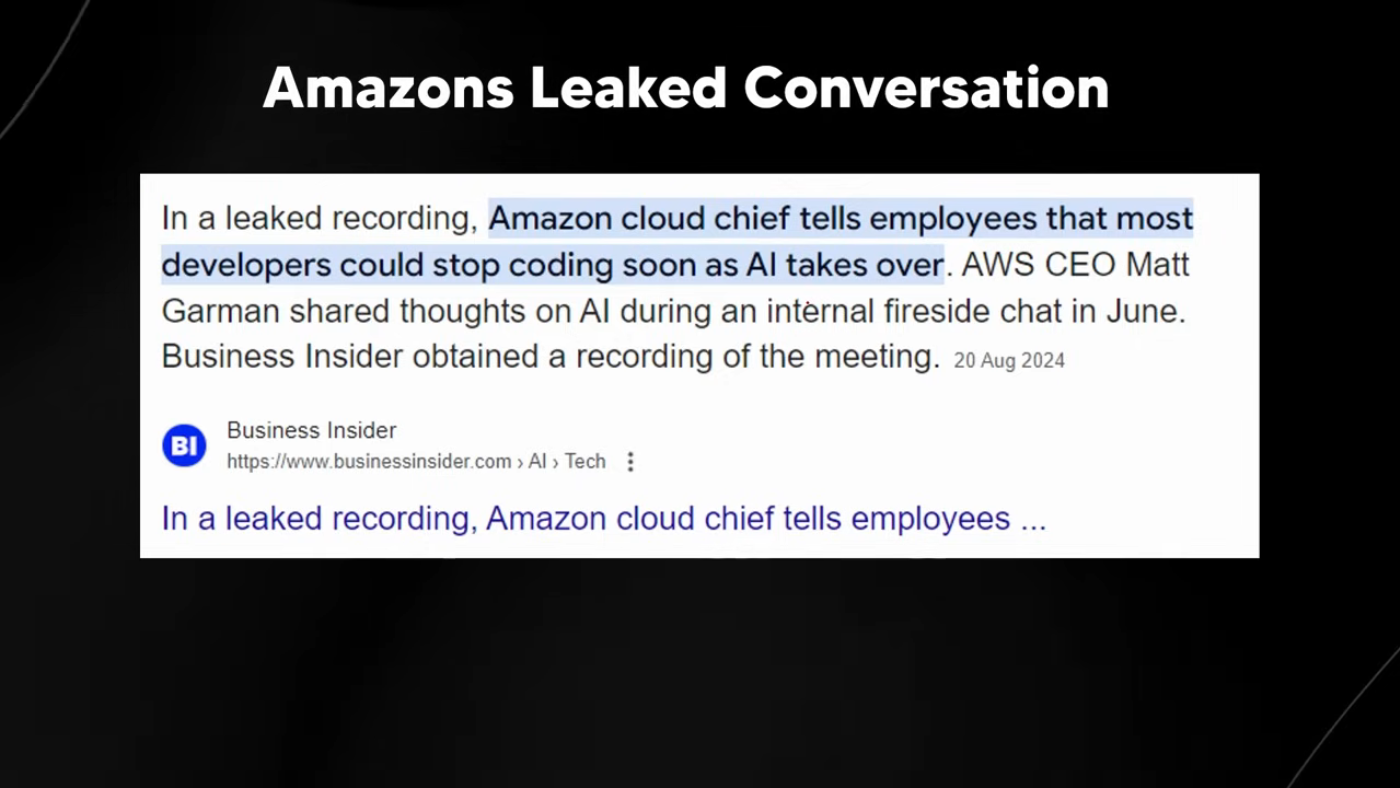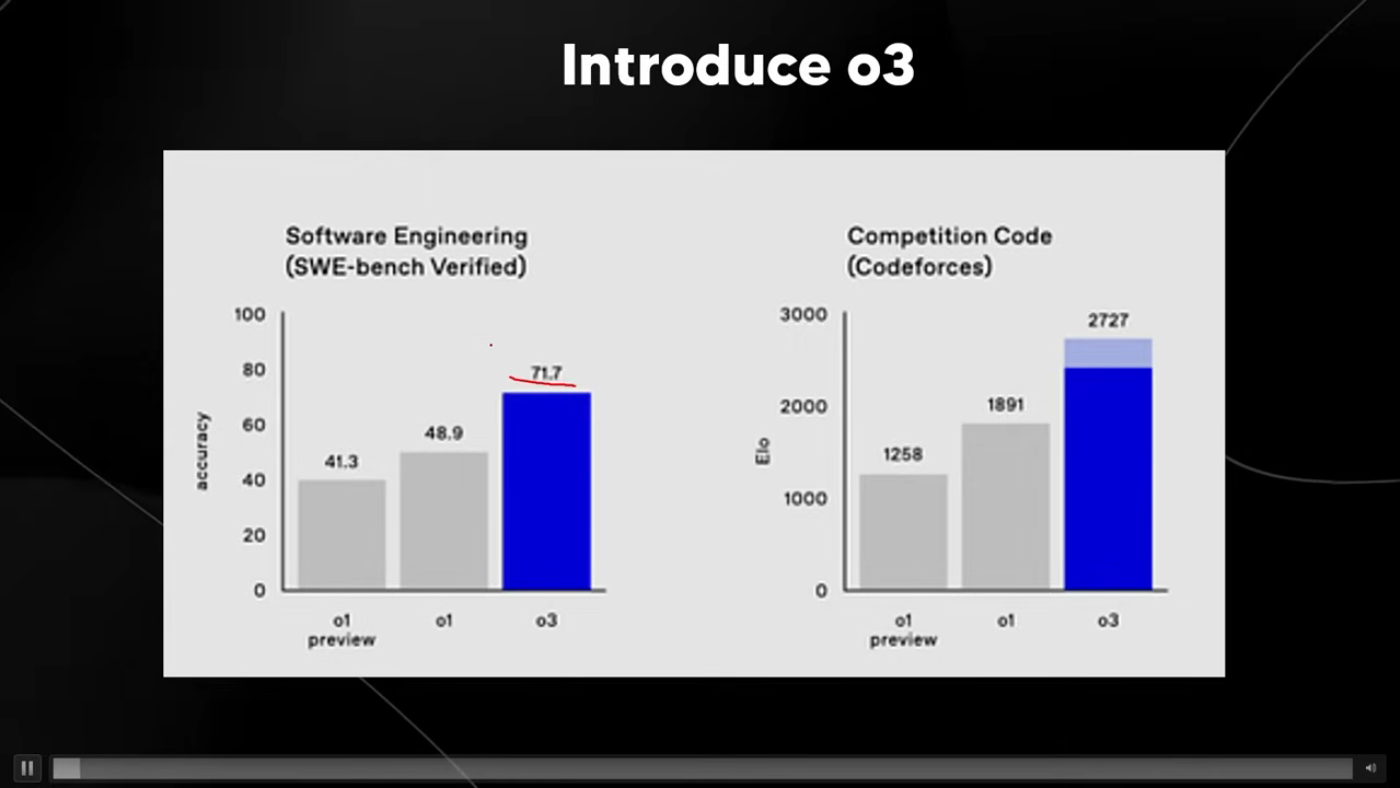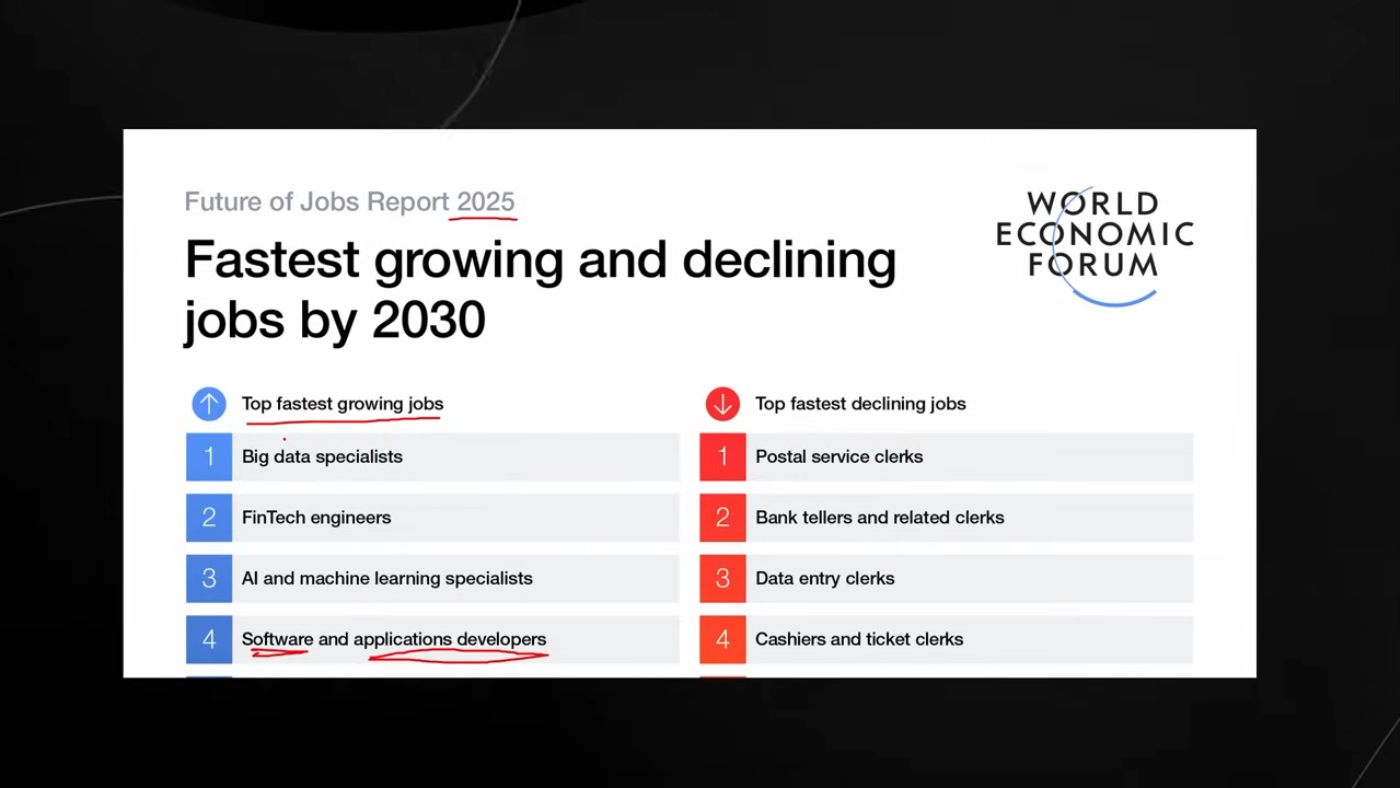The Future of Software Development in the Age of AI: A Nuanced Perspective
There's a lot of buzz surrounding the role of AI in software development, and understandably so. Predictions range from AI completely replacing human coders to AI empowering developers like never before. This article delves into this complex landscape, analyzing current AI capabilities, industry trends, and economic principles to offer a nuanced perspective on the future of software development.
AI Coders: A Mid-Level Engineer by 2025?
Mark Zuckerberg, CEO of Meta, predicts that by 2025, AI could function as a mid-level engineer, capable of writing code independently. This prediction, while ambitious, aligns with the rapid advancements in AI coding capabilities. The initial cost of running such AI systems will likely be high, but as efficiency improves, the cost is expected to decrease, potentially leading to a situation where a significant portion of code in applications, including the AI itself, is generated by AI. This isn't just Zuckerberg's perspective. Amazon’s Cloud Chief, in a leaked conversation from 2024, suggested a similar future, stating that most developers might stop coding as AI takes over.
Benchmarking AI Coding Prowess: A Rapid Ascent
Examining benchmarks like the SWE Bench (Software Engineering Benchmark) provides a quantitative measure of AI's coding capabilities. In early 2024, AI performance on this benchmark was around 7%. By the end of the year, models like Code Story Midwit Agent, combined with SWE Search, achieved a score of 62% - almost double the initial performance. This benchmark is particularly challenging as it tests AI on problems not included in its training data. Even more impressively, the latest model, GPT-03, scores 71.7% – demonstrating a rapid performance increase within a single year. If this trend continues, achieving near-perfect scores on such benchmarks within the next 18 months seems plausible.
The Role of Reasoning and Cost-Effectiveness: GPT-03's Advantage
OpenAI's discussion on GPT-03's coding performance offers further insights. They highlight GPT-03’s ability to improve its performance with increased thinking time, outperforming previous iterations like GPT-01 at a fraction of the cost. Noam Brown, a key figure behind OpenAI's reasoning research, describes GPT-01 as already acting like a software engineer, authoring pull requests and demonstrating the potential for AI to become a valuable coding partner. However, the current high cost of models like GPT-03 raises questions about their practical applicability. While prices are expected to decline, the cost-effectiveness of these models remains a crucial factor in their wider adoption.
The Jevons Paradox and Increased Demand for Developers
The Jevons Paradox, an economic principle, states that increased efficiency in resource use often leads to increased demand for that resource. In the context of software development, as AI makes coding faster and cheaper, more businesses and individuals can create software, expanding the range of software use cases and increasing the overall demand for software solutions. This surge in software development activity creates a need for more software engineers, not fewer. While AI can automate certain coding tasks, human developers will be essential for supervising, debugging, designing architecture, handling complex logic, refining AI models, and managing AI agent systems.
The Software Engineer's Evolving Role: Orchestrating AI Agents
Evidence supporting this evolving role can be found in Apple's recent job postings. They specifically seek software engineers with experience in AI agent-based frameworks like Crew AI and LangChain. This indicates a shift towards developers managing and orchestrating AI agents, increasing their leverage and power in the development process. The World Economic Forum's Future of Jobs Report 2025 further reinforces this notion by listing software and application developers as the fourth fastest-growing job sector. This suggests a growing demand for developers in an AI-driven world.
Conclusion: A Symbiotic Future
The narrative of AI replacing software developers is overly simplistic. Instead, the future points towards a symbiotic relationship where AI augments human capabilities. While AI can automate certain aspects of coding, the demand for skilled software engineers with expertise in AI agent management and specialized frameworks will likely increase. This new era demands developers who can not only write code but also orchestrate AI agents, opening up new possibilities and accelerating the pace of innovation. The key takeaway is that developers are not becoming obsolete; they are evolving, and those who embrace this evolution will be at the forefront of the next generation of software development.





